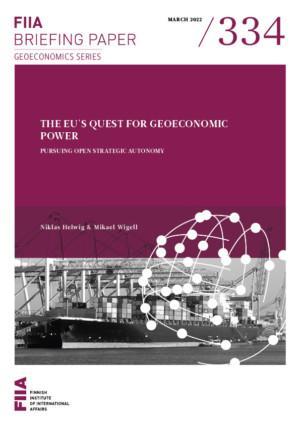The EU is adapting its policy toolkit under the heading of ‘open strategic autonomy’, which combines the Union’s market-liberal preferences with more assertive economic policies.
While the EU is largely deploying defensive measures to protect itself from unfair trade practices and economic coercion, it is also increasingly moving towards a more strategic use of economic tools.
The EU’s economic defence capabilities include initiatives to improve competitiveness in key strategic sectors (such as cloud computing, semi-conductors, and pharmaceuticals) as well as instruments to deter, block or retaliate against distortive or coercive measures by other powers.
The strategic policies of the EU include trade and investment instruments for economic ‘binding’, such as the new ‘Global Gateway’ initiative, as well as means for leveraging the attractiveness of access to the single market to promote the EU’s norms and interests.
The EU’s recent sanctions against Russia demonstrates the Union’s coercive capabilities in the economic domain, and its potential as a geoeconomic power.



